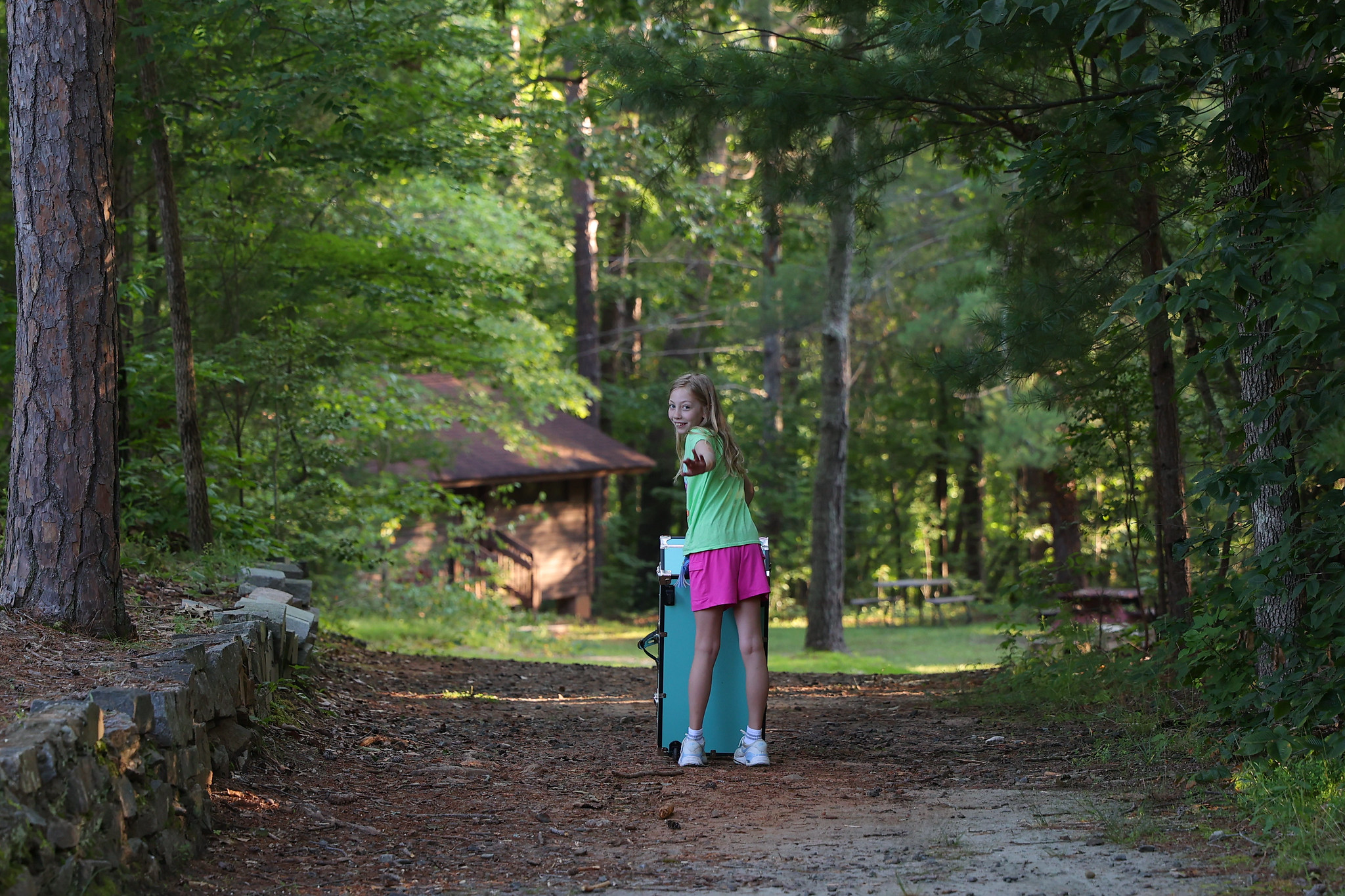“Mounting research demonstrates that, at this most critical time in life, interaction with nature affords children the pleasurable multisensory experiences that challenge their minds, invigorate their bodies, restore their spirits, and sharpen their focus.”
— Todd Christopher, The Green Hour
At Camp Fire Georgia, we believe every young person deserves the opportunity to discover who they are, find their spark, and connect deeply—to others, to themselves, and to the world around them. And there’s no better place for that connection than the outdoors.
Every summer, we see firsthand how the nature environment of Camp Toccoa brings out something powerful in children. A camper who arrives quiet and withdrawn begins to open up after an hiking our trails. A child who struggles to focus at school finds unexpected calm while canoeing on Lake Tawasi. These moments aren’t just sweet anecdotes—they’re supported by real science. Spending time in green spaces has been shown to improve children’s attention spans and working memory, particularly for kids who struggle with focus. One study conducted at the University of Illinois found that children with ADHD demonstrate greater attention after a 20-minute walk in a park than after a similar walk in a downtown area or a residential neighborhood.
And it’s not just their minds that benefit. Kids who spend more time outdoors are more physically active, with better motor skills, stronger bones and muscles, and reduced risks of obesity. The American Academy of Pediatrics encourages unstructured outdoor play as essential for healthy development. At camp, movement happens naturally—it’s hiking to a waterfall, conquering the climbing tower, or simply walking to the dining hall with friends. Physical activity becomes part of everyday.
But it’s not just the body and mind—nature also restores the spirit. In a world where kids face increasing pressure and mental health challenges, green spaces offer relief. Research shows that even short exposure to nature can reduce stress, lower anxiety, and lift mood (University of Exeter Medical School). At Camp Toccoa, this is what we hear from families again and again. We believe it’s because time outdoors allows children to slow down, breathe deeply, and reconnect with themselves.
Nature also encourages creativity and community. Without screens or scripts, kids invent their own games, negotiate rules, and solve problems together. The Children & Nature Network notes that unstructured play like this fosters both innovation and social-emotional skills. It’s one of the many reasons we design our camp experiences to be inclusive, empowering, and youth-led—giving kids the space and trust to grow on their own terms.
And surprisingly, time in nature doesn’t take away from learning—it can actually enhance it. A study in Current Directions in Psychological Science found that nature-based education supports emotional regulation and academic success. At Camp Fire, we’ve always believed that learning happens everywhere—not just in classrooms—and nature is one of the best teachers.
All of this is why we continue to protect outdoor spaces, champion environmental stewardship, and give kids daily opportunities to explore the natural world. It aligns with who we are: an inclusive, welcoming community where every young person can find belonging, purpose, and adventure. Whether it’s through a summer at Camp Toccoa, a school-year nature program, or a weekend hike with new friends, we invite families to make time outside a habit, not just a treat.
Because nature doesn’t just help kids grow. It helps them thrive.

